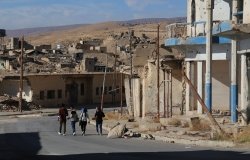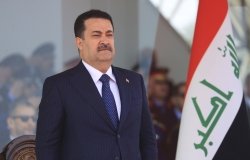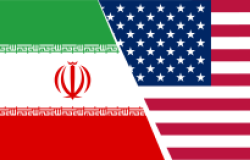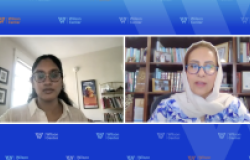If Shrines Are Threatened, Iran Will Send Troops
"Iran will need to be involved in any international solution to the chaos that has overtaken Iraq. But while there may be some commanders of the Revolutionary Guards who are arguing to send in military forces, Iran is unlikely to do more than send advisers to assist the Iraqi military, without committing its own forces," writes Haleh Esfandiari.
Iran will need to be involved in any international solution to the chaos that has overtaken Iraq. But while there may be some commanders of the Revolutionary Guards who are arguing to send in military forces, Iran is unlikely to do more than send advisers to assist the Iraqi military, without committing its own forces.
Memories of the Iran/Iraq war, budget strains and concerns about Gulf State relations would make military action unlikely, otherwise.
Iran will probably be very cautious about becoming involved in another country’s civil war. The financial drain would undermine already shaky budgets and an invasion would further strain relations with Persian Gulf states. The involvement in Syria is already a source of murmurs of discontent regarding costs and resources that might be better used at home.
If the holy Shiite shrines in Karbala and Najaf are threatened, though, that would be seen as a religious threat and the Iranian government would send troops.
Still, the government will find it very difficult to justify having its military help the discredited Maliki government and the Iraqi army. The memory of the Iran-Iraq war, when Iraq invaded Iran and over 250,000 Iranians lost their lives, is still very vivid in people’s mind. The generation that fought in that war, from 1980 to 1987, is still very much present. The martyrs of that war are commemorated on every official occasion; and the government would find it difficult to justify body bags coming home again simply to defend a government so unworthy of support.
About the Author


Middle East Program
The Wilson Center’s Middle East Program serves as a crucial resource for the policymaking community and beyond, providing analyses and research that helps inform US foreign policymaking, stimulates public debate, and expands knowledge about issues in the wider Middle East and North Africa (MENA) region. Read more










